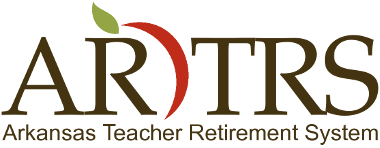$300 million settlement proposed in action brought by Arkansas Teacher Retirement System
by August 1, 2016 7:08 am 844 views

A New York City securities and class action law firm has proposed a $300 million settlement with Wall Street financial service giant State Street Corp. on behalf of the Arkansas Teacher Retirement System (ATRS), the lead plaintiff in a federal case going back more than five years.
Labaton Sucharow LLP of New York City, which served as the lead counsel in a federal case filed in the U.S. District Court for the District of Massachusetts in 2011, announced the proposed settlement earlier this week on behalf of ATRS.
“We believe $300 million is an excellent result for the class. After years of contested litigation and failed mediation and negotiations, this extraordinary settlement could not have been accomplished without good faith on both sides,” Lawrence Sucharow, chairman of the New York City law firm said in a statement.
ATRS Executive Director George Hopkins praised the Wall Street attorneys for resolving the class action complaint.
“The Arkansas Teacher Retirement System represents the retirement security for the educators of Arkansas,” Hopkins said in a statement from the New York law firm. “ATRS is focused on protecting the trust fund that ensures that retirement security.”
Sucharow commended the Arkansas public retirement system for its resolve and participation in the class action case that led to a federal investigation that was also settled this week. In the original case, ATRS alleges that State Street and certain affiliated entities misled members of the class in connection with certain foreign currency exchange (FX) trades. After surviving a motion to dismiss, review and analysis of several million pages of documents, consultation with experts, and multiple negotiation and mediation sessions, the parties came to an agreed-upon settlement.
“ATRS is pleased to have helped bring positive changes to the FX repatriation process in banks and to have assisted in the recovery of funds for ATRS and other public pension plans,” Hopkins said.
Hopkins said the ultimate amount ATRS will receive is not clear since the court has to approve a distribution formula. Once that occurs, the amount paid is also dependent upon how many claims are filed and the size of those claims, he said.
ATRS’s investments have a market value exceeding $14.3 billion, according to the system’s latest board minutes. A Labaton Sucharow spokesperson did not respond to inquiries concerning how much the state’s largest public pension fund will receive from the proposed $300 million State Street settlement, minus attorney fees.
In a separate but related act, the federal Securities and Exchange Commission (SEC) announced July 17 it reached a settlement with State Street Bank and Trust Company in which the Boston financial services giant agreed to pay $382.4 million for misleading mutual funds and other custody clients by applying hidden markups to foreign currency exchange trades.
“State Street misled custody clients about how it priced their trades and tucked its hidden markups into a corner where they were unlikely to notice,” said Andrew Ceresney, director of the SEC’s Division of Enforcement. “Financial institutions cannot mislead their customers about their trading costs.”
State Street set prices largely driven by predetermined, uniform markups and made no effort to obtain the best possible prices for these clients, the SEC said. State Street has also agreed to pay $167.4 million in disgorgement and penalties to the SEC, a $155 million penalty to the Department of Justice, and at least $60 million to ERISA plan clients in an agreement with the Department of Labor.
State Street will be required to pay $75 million in disgorgement plus $17.4 million in interest to harmed clients as well as a $75 million penalty.
Before ATRS’ lawsuit against State Street more than five years ago, State Street had already come under scrutiny for its relationships with public pension funds. In 2009, the nation’s two largest public pension systems – the $301 billion California Public Employees’ Retirement System (CalPERS) and the $188.7 billion California State Teachers’ Retirement System (CalSTRS) – launched a case against State Street over it’s foreign-exchange fees.
